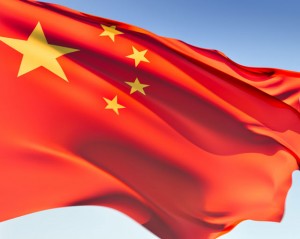Sunday
Jul182010
China's Economy This Week: Development in the West, Growth Slows but Exports Up, China-Argentina Railway Deal
 Sunday, July 18, 2010 at 8:04
Sunday, July 18, 2010 at 8:04  China's Western Region Development Plan: Ten years after it unveiled a strategy to promote growth in its western areas, China announced a plan to continue the initiative, even as the world's third-largest economy strives for more domestic-driven growth.
China's Western Region Development Plan: Ten years after it unveiled a strategy to promote growth in its western areas, China announced a plan to continue the initiative, even as the world's third-largest economy strives for more domestic-driven growth.The move comes amidst Government steps such as subsidizing auto and home appliance buyers to boost demand and lessen reliance on exports.
The National Development and Reform Commission said it will unveil 23 new infrastructure projects in the western region this year, with a total investment of 682.2 billion yuan ($100.62 billion). The money will be used to build railways, roads, airports, coal mines, and hydro-power stations.
The western region has six provinces, five autonomous regions and Chongqing municipality, accounting for more than 70 percent of the mainland and the habitat of 75 percent of the country's ethnic minorities.
China, Argentina Railway Deals: China and Argentina signed railway deals totaling $10 billion on Tuesday, amid efforts by Beijing to forge stronger commercial ties with Latin America.
Twelve agreements were reached between the two countries during Argentine President Cristina Fernandez de Kirchner's five-day visit to China.
The 10 railway projects, ranging from two to five years,- include the purchase of Chinese railway technology and investments in Argentina's rail line electrification projects,. Other deals cover areas like infrastructure, fishery, and energy. The two countries agreed to collaborate in light rail and subway construction in Argentina, with China providing export credit to Argentina for purchases of locomotives.
China's Growth Slows: Economic data Thursday confirmed market expectations that China's growth rate has slowed, but officials said the country's economy is still on track.
The Chinese economy expanded at a 10.3% year-on-year rate in the second quarter, slower than the 11.9% growth in the first quarter and the 10.7% in the last quarter of 2009, the National Bureau of Statistics said.
Many economists welcomed the economy's cooling, saying the slower growth is more sustainable. The moderation, which the government expected, will help accelerate transformation of growth and prevent overheating, NBS spokesman Sheng Laiyun told a press conference.
June Exports Highest in Year: China's exports for June hit a high point since July 2008, and the trade surplus also surged, although economists insisted such strong momentum cannot be sustained and there is little possibility that the yuan will strengthen by large margins, as widely expected.
The General Administration of Customs said that China's shipment of exports last month grew by 43.9% from the previous year to $137.4 billion and imports rose by 34.1% to $117.4 billion. The $20 billion trade surplus is a record high.
"There are reasons for the fast growth in exports in June, but the prospects are unhopeful in the second half of the year given a series of factors, including the European debt crisis, gradual appreciation of the yuan and rising costs for raw materials and labor," said Huo Jianguo, director of the Chinese Academy of International Trade and Economic Cooperation, affiliated with the Ministry of Commerce.
Tightening of Property Policy to Continue: China will continue its tightening policies for the property sector, even as housing prices in June saw the first monthly fall since February 2009, the Ministry of Housing and Urban-Rural Development said on Monday.
To rein in runaway property prices, the government in April raised down payments, ended mortgage discounts, tightened rules on loans to developers, and made it harder to buy more homes.
The property sector usually accounts for about 10 percent of Gross Domestic Product, and construction consumes half of the nation's output of steel and 36% of its aluminum.
China looking to Latin America for Oil, Gas: The China National Offshore Oil Corporation is eyeing Argentina and other Latin American countries for oil and gas development.
CNOOC will facilitate this through a joint venture set up in March this year with Bridas Energy Holdings of Argentina, said Fu Chengyu, president of CNOOC during a meeting with Julio de Vido, Argentinean minister of planning and development.
Mainland Yuan Service for Taiwan: The People's Bank of China, the central bank, announced Tuesday that it has authorized the Bank of China (Hong Kong) Limited to provide RMB cash settlement services to Taiwan.
Currently, Taiwan banks can trade yuan in Hong Kong at the Hong Kong and Shanghai Banking Corporation and Bank of America.

